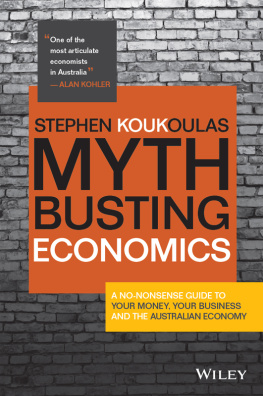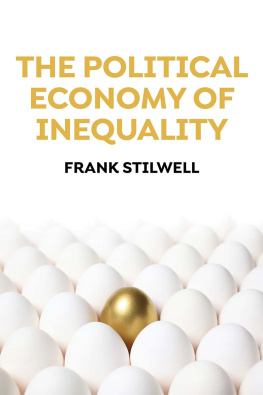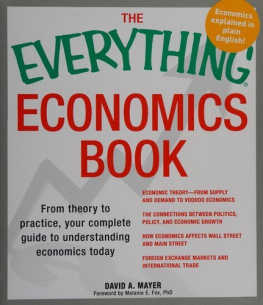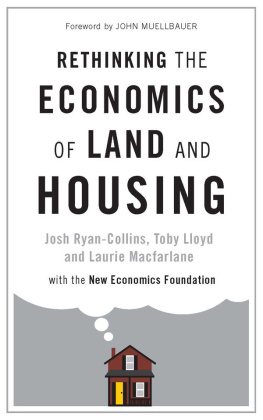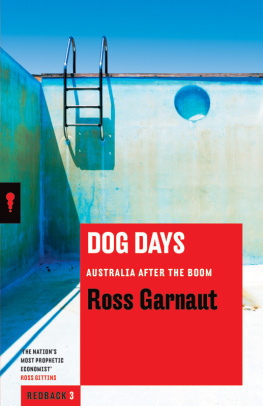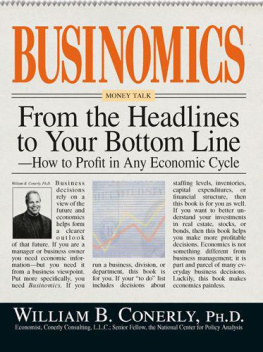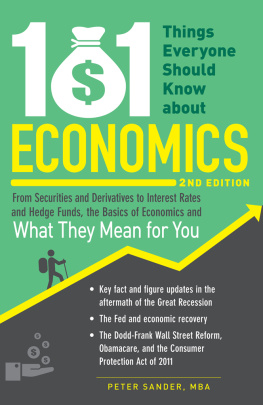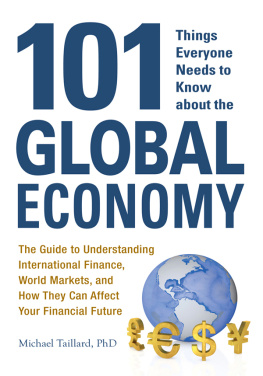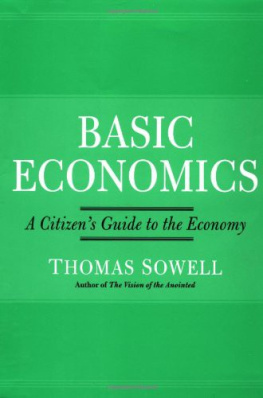
MYTH BUSTING ECONOMICS
A NO-NONSENSE GUIDE TO YOUR MONEY, YOUR BUSINESS AND THE AUSTRALIAN ECONOMY
STEPHEN KOUKOULAS
First published in 2015 by John Wiley & Sons Australia, Ltd
42 McDougall St, Milton Qld 4064
Office also in Melbourne
Market Economics Pty Limited 2015
The moral rights of the author have been asserted
National Library of Australia Cataloguing-in-Publication data:
| Creator: | Koukoulas, Stephen, author. |
| Title: | Myth-busting economics: a no-nonsense guide to your money, your business and the Australian economy / Stephen Koukoulas. |
| ISBN: | 9780730321958 (pbk.) 9780730321965 (ebook) |
| Notes: | Includes index. |
| Subjects: | Financial literacy Australia. Finance, Personal Australia. Economics Australia Popular works. |
| Dewey Number: | 332.024 |
All rights reserved. Except as permitted under the Australian Copyright Act 1968 (for example, a fair dealing for the purposes of study, research, criticism or review), no part of this book may be reproduced, stored in a retrieval system, communicated or transmitted in any form or by any means without prior written permission. All inquiries should be made to the publisher at the address above.
Cover design by Wiley
Cover image GoodLifeStudio/iStockphoto.com
Disclaimer
The material in this publication is of the nature of general comment only, and does not represent professional advice. It is not intended to provide specific guidance for particular circumstances and it should not be relied on as the basis for any decision to take action or not take action on any matter which it covers. Readers should obtain professional advice where appropriate, before making any such decision. To the maximum extent permitted by law, the author and publisher disclaim all responsibility and liability to any person, arising directly or indirectly from any person taking or not taking action based on the information in this publication.
ABOUT THE AUTHOR
Stephen Koukoulas is one of Australias leading economic visionaries. With his rare and specialised professional experience from almost 30 years as an economist, he looks at economics with refreshing honesty and openness, especially when the answer to many of the economic issues of the day are neither black nor white.
His first job was in the Commonwealth Treasury in Canberra, arriving in an office where most of the staff were smoking, ashtrays were overflowing, the floor was a Soviet-grey lino and there was a huge computer printout of data on his desk that had to be checked with a sharp pencil and a calculator. After 8 years, Stephen moved to Citibank in Sydney and, at age 33, was appointed Chief Economist. It was in this role where he started to gain a profile in the business sector, funds management industry and the media. But in 1999, when Citibank merged with Salomon Smith Barney, Stephen was left to look for other opportunities in the market; in other words made redundant as the new Citibank strove for new synergies and efficiencies. The other opportunities for Stephen came in the form of a writing role at The Australian Financial Review. It was here that he started to stir the pot with frank and fearless analysis, opinion articles and bold calls in the financial markets.
The years that follow see Stephen returning to the financial markets, working for TD Securities which led to a promotion that would take him to London just before the global financial crisis. It might have been this experience that formed Stephens views about the virtues of using all levers of policy to promote economic growth and preserve jobs in times of economic and market upheaval.
On returning to Australia in 2010, he rejoined Treasury part-time as the macroeconomic adviser on financial markets. With the GFC still bubbling along in one form or another, he worked with then Treasurer Wayne Swans office up on Capital Hill, talking through and analysing what the high Aussie dollar, the Greek debt disaster and the still fractured markets might mean for policy settings in Australia. A few months later, the 2010 election saw the return of the Gillard government and Stephens mate, Jim Chalmers, who was Chief of Staff to Treasurer Wayne Swan and is now the Federal Member for Rankin, asked him if he would like to be economic policy adviser to Prime Minister Julia Gillard.
Stephen was in Prime Minister Gillards office for 10 months before leaving for personal reasons. In 2011, Stephen established his own advisory business, Market Economics, which prepares independent and tailored macroeconomic analysis for business clients needing to convert economic data into financial market and policy risks. His work provides clients with interesting and often unique insights into the macroeconomic policy debate.
With his unique background and knowledge, Stephen offers more than many economists. He has briefed Australian Prime Minister Tony Abbott on crucial economic policy issues; presented to over 35 central banks around the world; and delivered keynote addresses to the corporate world, the small business sector, retail investors and even Year 12 HSC economics students. He is a popular talking head for the ABC, Sky TV, radio and Network Tens The Project, and has a reputation for breaking down complex issues on the economy into easily understood commentary and analysis of the matter at hand.
For more on Stephen, or to follow his blog, visit www.thekouk.com.
ACKNOWLEDGEMENTS
For Meredith, oh how I miss you.
To Phoebe and Oskar the shining lights of my life.
This, my first book, was sparked by some colourful conversations with the wonderful people from Ode Management, a speaker management office, or as they call themselves, a direct management office for some of the worlds greatest disruptors, innovators and thought leaders. I am reluctant to single anyone out for fear of missing someone but the infectious enthusiasm of Leanne Christie, Julie Masters, Lauren Kelly, Heidi Gregory, Fiona Pascoe and Darren Reid deserves a mention. They were the catalyst for getting many of the things I speak to clients about into this book.
Then there were the people at my publisher, Wiley patient people as I stumbled through the process of working out what to do. And here is the finished product. So thanks to Chris Shorten, Jem Bates, Ingrid Bond and Lucy Raymond.
I would also like to thank Alan Kohler for allowing me to use some of the material from Business Spectator and for being an all-round good bloke.
And of course, to those over the years who have nurtured and fine-tuned my career and ideas on economics and financial markets and on how to sell a story. The likes of Grant Bailey, Chris Pashley, Mark Aldridge, Colleen Ryan, Roger Kilham, Martine Irman and from the distant past, it now seems, Chris Higgins, are just a few of the special people that probably dont realise how much they influenced my career. What good people they are. To Arthur Sinodinos, thanks for hiring me as a graduate in Treasury all those years ago.
Finally, to my family. The last few years have taught me more about life than I will ever know about economics. More than I wanted to know. Who cares where the economy is or where interest rates are going when your world falls apart. Loved ones matter, not the ASX200. There is the personal exhilaration so often experienced in life and shared with your family during the good times, usually when luck also goes your way. These feelings are best shared and should be savoured like there is no tomorrow. Alas, we have also had to share the horrid grief and absolute despondency when ill-health and death end the most special relationships.
Next page
